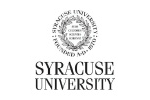



ONLINE HISTORY COURSE
“House of Wax: The History of Anatomical Models as Works of Art and Medicine“
LIVE HISTORY COURSE with Dr. Jeremy Wasser
Dates: November 20, November 27 & December 4, 2023
Schedule: Mondays
Time: 2:00 – 3:15pm ET | 11:00am – 12:15pm PT |
7:00 – 8:15pm London
Contact Hours: 3.45 Hours
ONLINE HISTORY COURSE
“House of Wax: The History of Anatomical Models as Works of Art and Medicine”
Course Description:
For at least the last 37,000 years, humans have sculpted and drawn the human form. What compelled our prehistoric ancestors to do this is unknown and subject to debate among prehistorians, but something compelled these ancient artists to represent human anatomy in stone, bone, and mammoth ivory. The ancient Mesopotamian civilizations and those of classical antiquity have left us with not just sculptures of human and semi-human form but also anatomically accurate models designed for medical diagnosis and therapeutic purposes. This trend continued and expanded throughout the Middle Ages and Early Modern Period.
Join physiologist and medical historian, Dr. Jeremy Wasser, for a tour of the history of anatomical representations of the human body. Why were these images of bodies (and body parts) made and how were they used by their makers and contemporary healers. What do the images tell us about how these peoples viewed the human body in health and disease and how they understood the relationship of humans to the world around them and to the universe itself, the microcosm in the macrocosm.
Instructor:
Jeremy Wasser, Ph.D. is an Associate Professor of Physiology at Texas A&M University. Dr. Wasser serves as the program leader for study abroad programs in Germany, focused on the history of medicine, providing future doctors and biomedical science researchers with a foundation in physiology and the medical humanities. Along with his scientific publications he has written and lectured on the culture of disease, the history of public health and health policy, the history of human experimentation, and the role of physiological education in contemplative practices. Additionally, Wasser’s training in opera and theatre inform the unique personas that he creates for lectures in the history of medicine and performances related to science and storytelling.
Virtual Classroom: Full access to an online educational platform with videos of recordings, syllabus, and reading list.
Location: LIVE INTERACTIVE ON-LINE HISTORY LECTURES
Optional Readings:
Information will be provided upon registration.
Complete syllabus will be provided upon registration.
LECTURE 1 – SCULPTING THE HUMAN FORM FROM PREHISTORY THROUGH THE ANTIQUE WORLD
– Monday, November 20
We will start our journey with a discussion of the “Venus” figurines. These are ancient sculptures of the female form. The oldest is the “Venus of Hohle Fels” dating from about 37,000 years ago while her more famous companion, the “Venus of Willendorf” is about 27,000 years old. How were these images made and, more importantly, why? We will also include a discussion of related prehistoric cave paintings that illustrate the understanding of anatomy by members of prehistoric societies. The refinement of the representation of the human form by the civilizations of the antique world will be considered with an emphasis on the medical uses of these images.
LECTURE 2 – ANATOMY, MEDICINE AND ART IN THE MIDDLE AGES AND EARLY MODERN PAINTING
– Monday, November 27
Turning to the European Middle Ages and Early Modern Period, this lecture focuses on the increasingly sophisticated understanding of human anatomy (and physiology) during this time that was nevertheless compromised and held back by a continued adherence to the ancient “humoral theory” as the basis of health and disease. It was during this period that anatomical knowledge became, albeit slowly, modern and scientific with consequences for both medicine and art. This evolution in the knowledge of how the human body actually looked, both inside and out, and how it functioned, culminated in the drawings and sculptures of artists like Leonardo da Vinci and Michelangelo and in the anatomical work of the great Belgian anatomist, Andreas Vesalius in the mid-16th century.
LECTURE 3 – FROM THE “ANATOMICAL VENUS” TO “BODY WORLDS”
– Monday, December 4
In our final lecture, we will explore the “golden age” of anatomical modeling with the development of sophisticated methods to produce astoundingly detailed and accurate models in wax. We will take a deep dive into the work of the 17th century Italian artist, Gaetano Zumbo and the subsequent development of the great wax modeling workshop of Clemente Susini (also in Florence) which produced thousands of anatomical waxes currently in museums like La Specula in Florence and the Josephinum in Vienna. I will draw a line connecting these extraordinary works with the current methods of illustrating the human body (3-D imaging technologies such as MRI) and the controversial plastination techniques pioneered by Gunther van Hagens for his “Body Worlds” exhibitions.
Jeremy Wasser, Ph.D. is an Associate Professor of Physiology at Texas A&M University. Dr. Wasser serves as the program leader for study abroad programs in Germany, focused on the history of medicine, providing future doctors and biomedical science researchers with a foundation in physiology and the medical humanities. Along with his scientific publications he has written and lectured on the culture of disease, the history of public health and health policy, the history of human experimentation, and the role of physiological education in contemplative practices. Additionally, Wasser’s training in opera and theatre inform the unique personas that he creates for lectures in the history of medicine and performances related to science and storytelling.














